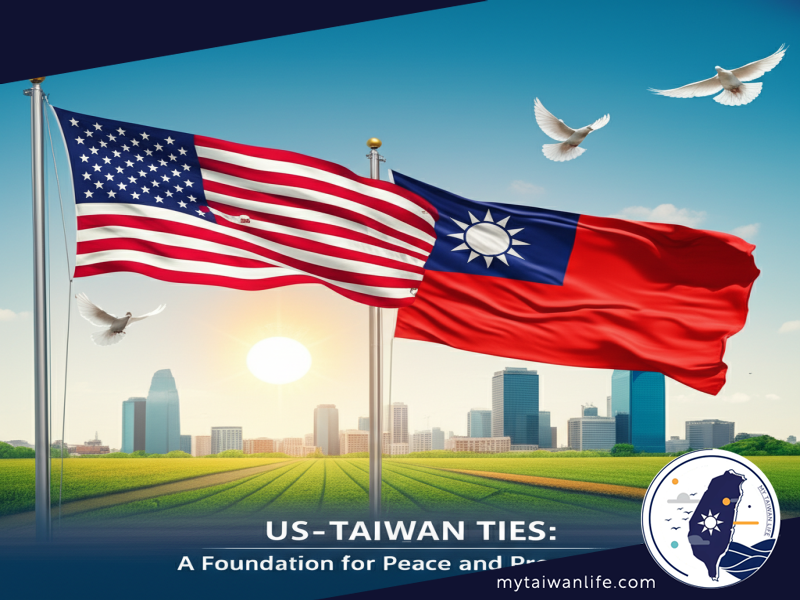US-Taiwan Ties: A Foundation for Peace and Prosperity
AIT Director Highlights Key Pillars for Stability and Cooperation

American Institute in Taiwan (AIT) Director Raymond Greene emphasized the critical role of strong US-Taiwan relations in ensuring peace and stability for Taiwan during a recent address at the National Security Youth Forum in Taipei.
Greene highlighted that the relationship is built on deep economic ties and shared values, advocating for strengthened supply chain security in critical industries, enhanced societal resilience through cooperation, and deepened partnerships as essential steps.
Speaking in Mandarin Chinese, Greene noted the enduring friendship between the people of Taiwan and the US, which has remained consistent through various US administrations.
His priorities as AIT director are security, resilience, and connection. His recent trip to the US was part of fulfilling those goals, particularly by working to further bolster economic ties between Taiwan and the US.
Greene also mentioned his honor to attend the SelectUSA Investment Summit, a key US government initiative promoting foreign direct investment. He acknowledged the significant participation of over 180 representatives from 130 Taiwanese companies, viewing the summit as a prime example of international cooperation.
In addition to Washington, the AIT coordinated visits for Taiwanese business groups to various US regions based on their areas of interest, including artificial intelligence (AI), semiconductors, and drone technologies.
These three industries are critically important, aligning with the AIT’s mission to promote security and resilience, as well as the US administration’s goal to make the US and Taiwan stronger, safer, and more prosperous.
Reflecting on the 46th anniversary of the Taiwan Relations Act, Greene expressed confidence that continued efforts to secure supply chains in critical industries, bolster societal resilience through cooperation, and deepen partnerships through two-way investment would ensure the peace maintained over the past 45 years would extend to the next 45 years and longer.
The forum was also attended by Chinese Nationalist Party (KMT) Chairman Eric Chu (朱立倫) and National Security Council Deputy Secretary-General Hsu Szu-chien (徐斯儉).
Chu emphasized that national security encompasses national defense, cross-strait relations, economics, energy, technological and social issues. He stated the KMT caucus would propose legislation aimed at modernizing national defense, including a special statute for defense budgets, recognizing the global call for increased defense spending to protect Taiwan’s safety. He noted that the expanded defense budget should also enhance homeland defense, bolster social security, and invest in talent cultivation.
Chu also addressed the declining birthrate and the low willingness of young people to join the military as major crises facing Taiwan, emphasizing the need for improved welfare for military personnel.
Hsu emphasized the importance of peace and stability across the Taiwan Strait for global security and development. He noted Taiwan should utilize its strategic geopolitical position within the first island chain, along with its leading role in semiconductors and information and communications technology, to advance the nation’s interests.
Other Versions
Lazos entre Estados Unidos y Taiwán: Una base para la paz y la prosperidad
Liens entre les États-Unis et Taïwan : Une base pour la paix et la prospérité
Hubungan AS-Taiwan: Landasan untuk Perdamaian dan Kemakmuran
Legami USA-Taiwan: Una base per la pace e la prosperità
米台関係平和と繁栄の基盤
미국-대만 관계: 평화와 번영을 위한 토대
Ugnayan ng US-Taiwan: Isang Batayan para sa Kapayapaan at Kasaganaan
Связи между США и Тайванем: Основа мира и процветания
ความสัมพันธ์สหรัฐฯ-ไต้หวัน: รากฐานเพื่อสันติภาพและความเจริญรุ่งเรือง
Quan hệ Mỹ-Đài Loan: Nền tảng cho Hòa bình và Thịnh vượng

